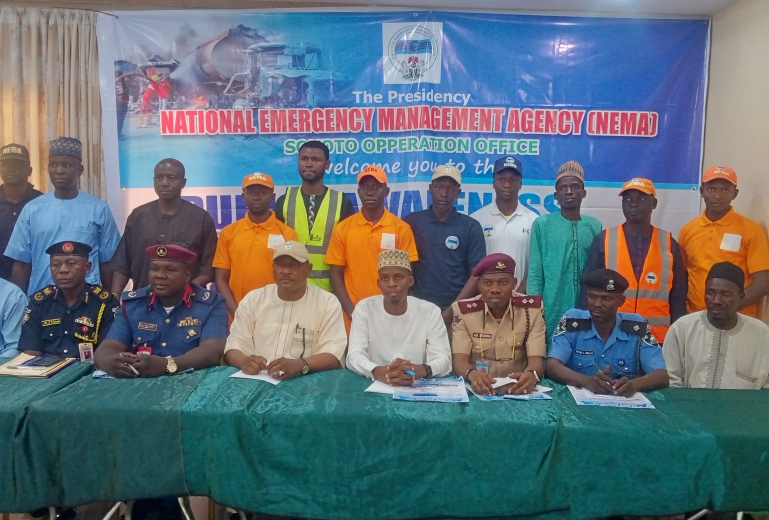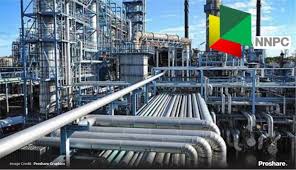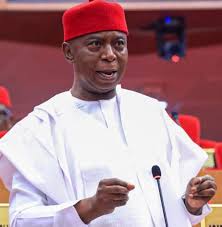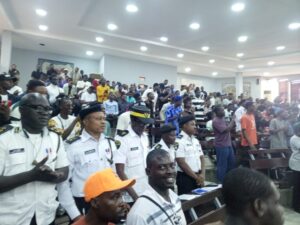FG unveils CNG buses, tricycles, conversion services for universities
By Emmanuella Anokam
The Federal Government has inaugurated a transport scheme known as “Project CNG-SPROUT” an initiative aimed at promoting Compressed Natural Gas (CNG)-powered transportation in all Nigerian universities.
The Minister of State for Petroleum Resources (Gas), Mr Ekperikpe Ekpo, said this while inaugurating the pilot phase of the project at the FEMADEC AutoGas Centre, Yakubu Gowon University, Abuja, formerly known as UniAbuja.
The News Agency of Nigeria (NAN) reports that the project is the first out of the 20 projects to be delivered across universities in the country, while additional five would be commissioned in June.

It aims to improve mobility and reduce transportation cost for students and lecturers thereby establishing CNG ecosystems, donating CNG-powered buses and tricycles, as well as providing subsidised conversion services for lecturers’ vehicles.
The initiative which serves as Special Palliative Relief on University Transportation (CNG–SPROUT) Project, aims at deploying CNG buses, tricycles, conversion centres and refuelling infrastructure to university campuses nationwide.
Ekpo said there was need to cushion the impact of high cost of transportation on the most vulnerable populations, including students.
“This project remains a key national priority, as Nigeria navigates through economic adjustment and transition to cleaner fuels,” he said.
The minister said that further incentives, especially as it concerned CNG vehicle conversion, expanding refuelling infrastructure, and supporting local assembly and innovation in the CNG value chain, would be unveiled in the coming months.
“President Bola Tinubu has made a firm commitment to prioritise energy affordability, security and environmental responsibility; today’s commissioning is a direct demonstration of that commitment in action.
“Through the Presidential Compressed Gas Initiative (P-CNGI), we are not only mitigating the impact of recent subsidy reforms but also laying the foundation for a modern, gas-driven transport economy.
“As Nigeria navigates the pathway of energy reform, economic adjustment and transition to cleaner fuels, the need to cushion the impact on the most vulnerable populations, including students, remained a key national priority.
“I will like to specially commend FEMADEC Energy for their vision, commitment and leadership in bringing this project to life. FEMADEC has shown that Nigerian companies have the capacity to be at the forefront of energy innovation.
“Their partnership with the Midstream and Downstream Gas Infrastructure Fund (MDGIF) underlines what is possible when the private and public sectors work hand-in-hand for national development,’’ Ekpo said.
According to the minister, the MDGIF has remained a steadfast partner in the actualisation of Nigeria’s Decade of Gas vision, providing catalytic funding and support to infrastructure projects that directly benefit the Nigerian people.
He commended the collaborative efforts of the P-CNGI, the Federal Ministry of Education, the Ministry of Transportation, university administrators and private sector partners, who have worked tirelessly to make the project a reality.
The minister said that the students’ voices, challenges and aspirations have shaped the intervention, hence the Federal Government’s continued effort to ensure that affordable transport, clean energy and innovations were never out of students reach.

Ekpo further said that the Federal Government would continue to deepen the Decade of Gas agenda, as it expands similar initiatives, not just to university campuses, but across other public institutions and commercial sectors.
“In the coming months, we will be unveiling further incentives for CNG vehicle conversion, expanding refuelling infrastructure, and supporting local assembly and innovation in the CNG value chain.”
In his address, the Minister of Education, Dr Tunji Alausa, lauded the project saying that it would enable staff and students of the institution to have their cars converted and refilled with CNG for affordable transportation.
He expressed satisfaction with the recent reforms and programmes of government to energise education in various universities across the country.
Prof. Patricia Lar, Acting Vice Chancellor, Yakubu Gowon University, (former UniAbuja), who was excited over the project, commended the Federal Government and the project facilitators for the initiative.
Lar lauded the facilitators for providing five 18-seater buses and many tricycles for the pilot scheme.
She decried the difficulties faced by students in transporting themselves to school, noting that the initiative would bring immediate relief to them and their lecturers.
The MDGIF which is domiciled in the Nigerian Midstream and Downstream Petroleum Regulatory Authority (NMDPRA) is a fund established to improve gas infrastructure and utilisation.
The CNG–SPROUT project is being delivered through the collaboration of the MDGIF, P-CNGI and FEMADEC Energy. (NAN)(www.nannews.ng)
Edited by Emmanuel Afonne















